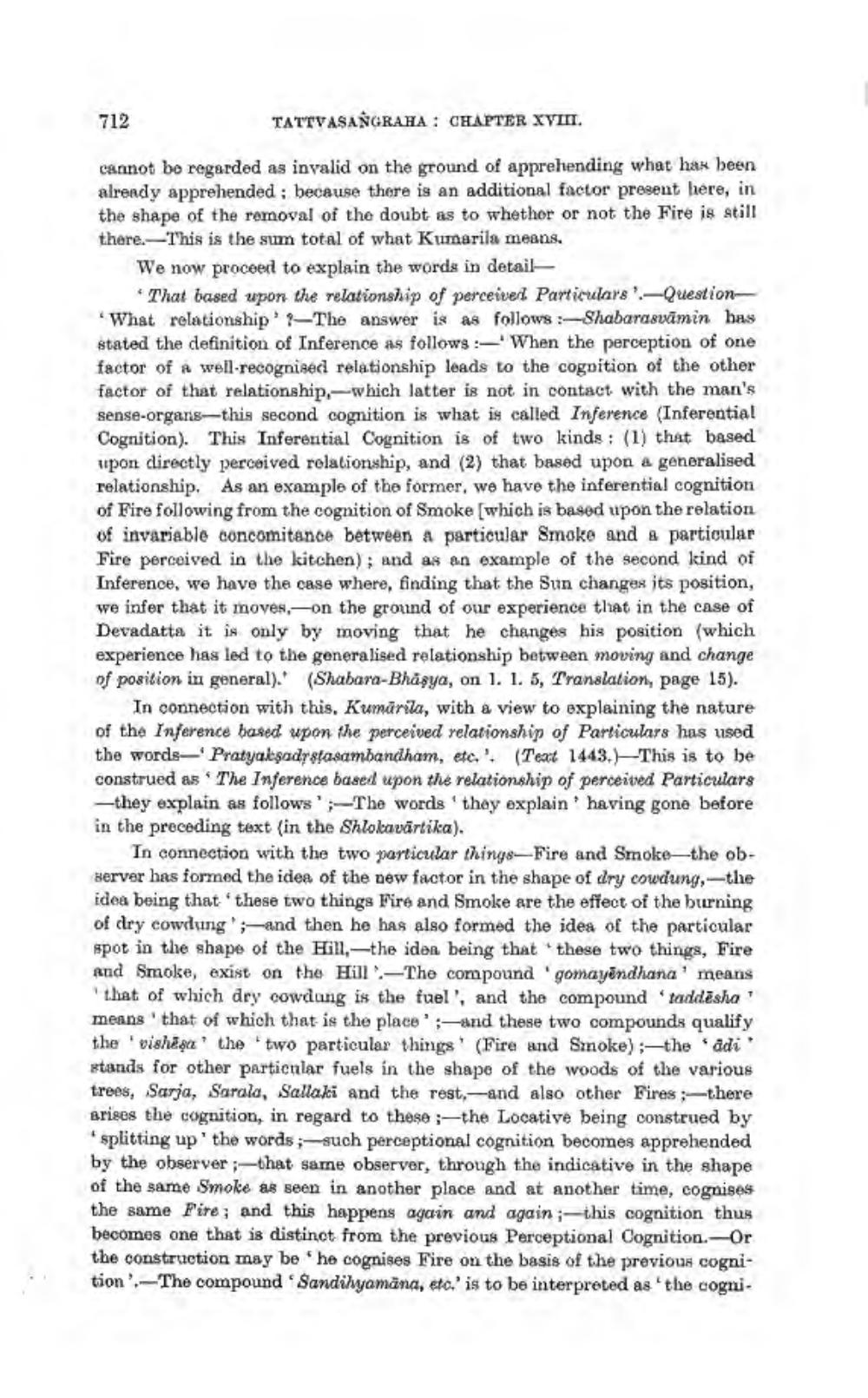________________
712
TATTVASANGRAHA : CHAPTER XVIII.
cannot be regarded as invalid on the ground of apprehending what has been already apprehended; because there is an additional factor present here, in the shape of the removal of the doubt as to whether or not the Fire is still there. This is the sum total of what Kumarila means.
We now proceed to explain the words in detail
* That based upon the relationship of perceived. Particulars-Question What relationship9-The answer is as follows:-Shabarasvīmin has stated the definition of Inference as follows:- When the perception of one factor of a well-recognised relationship leads to the cogoition of the other factor of that relationship, which latter is not in contact with the man's sense-orgars--this second cognition is what is called Inference (Inferential Cognition). This Inferential Cognition is of two kinds : (1) that based upon directly perceived relationship, and (2) that based upon a generalised relationship. As an example of the former, we have the inferential cognition of Fire following from the cognition of Smoke (which is based upon the relation of invariable concomitance between a particular Smoke and & particular Fire perceived in the kitchen); and as an example of the second kind of Inference, we have the case where, finding that the Sun changes its position, we infer that it moves.-on the ground of our experience that in the case of Devadatta it is only by moving that he changes his position (which experience has led to the generalised relationship between moving and change of position in general)." (Shabara-Bhasya, on 1. 1. 5, Translation, page 15).
In connection with this, Kumūrila, with a view to explaining the nature of the Inference based upon the perceived relationship of Particulars has used the words--Pratyaksadrstasambandham, etc.' (Teat 1443. This is to be construed as The Inference based upon the relationship of perceived Particulars - they explain as follows' ;-The words they explain having gone before in the preceding text (in the Shlokavārtika).
In connection with the two particular things-Fire and Smoke-the observer has formed the idea of the new factor in the shape of dry cowdung,the idea being that 'these two things Fire and Smoke are the effeot of the burning of dry cowrung; and then he has also formed the idea of the particular spot in the shape of the Hill, -the idea being that these two things, Fire and Smoke, exist on the Hill-The compound 'gomayēndhana' means
that of which dry cowdung is the fuel', and the compound 'taddēsha means 'that of which that is the place and these two compounds qualify the 'vishat the two particular things' (Fire and Smoke) :the adi' stands for other particular fuels in the shape of the woods of the various trees, Sarja, Sarala, Sallaki and the rest, and also other Fires ;-there Brises the cognition, in regard to these the Locative being construed by
splitting up' the words ;-such perceptional cognition becomes apprehended by the observer ;-that same observer, through the indicative in the shape of the same Smoke as seen in another place and at another time, cognises the same Pire; and this happens again and again ;-this cognition thus becomes one that is distinct from the previous Perceptional Cognition.-Or the construction may be 'he cognises Fire on the basis of the previous cognition'.--The compound Sandihyamāna, etc.' is to be interpreted as the cogni




